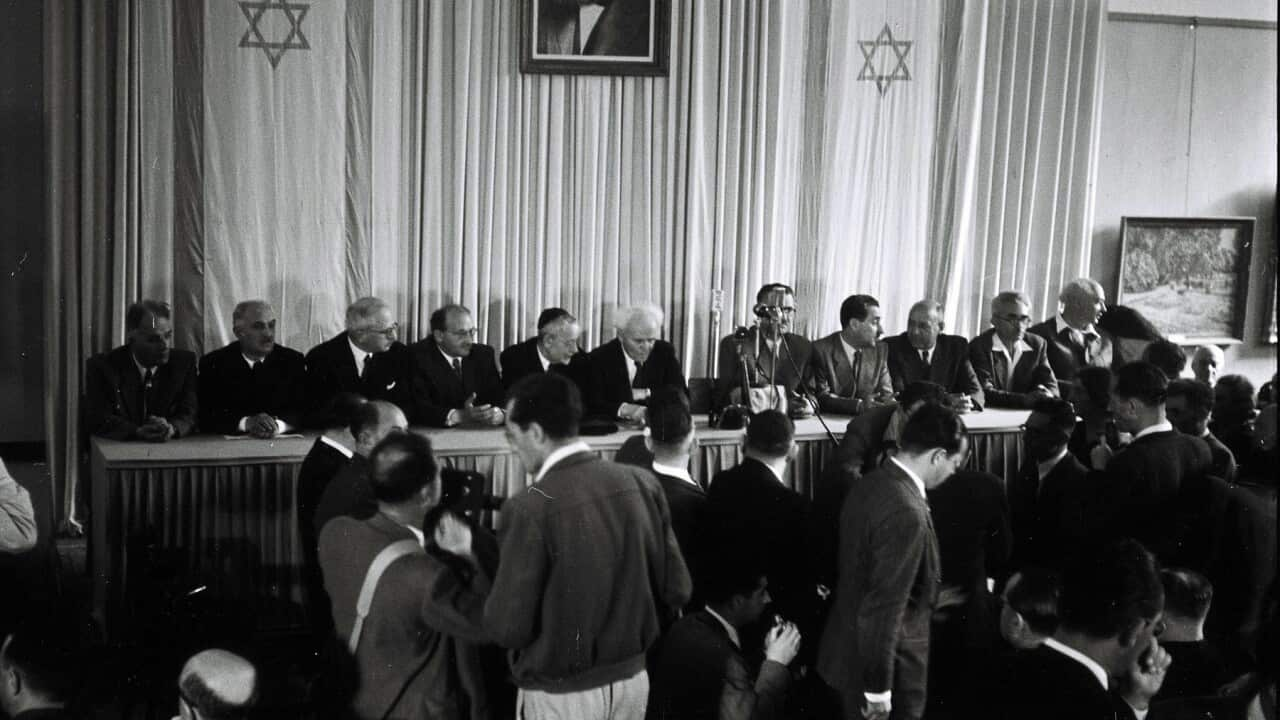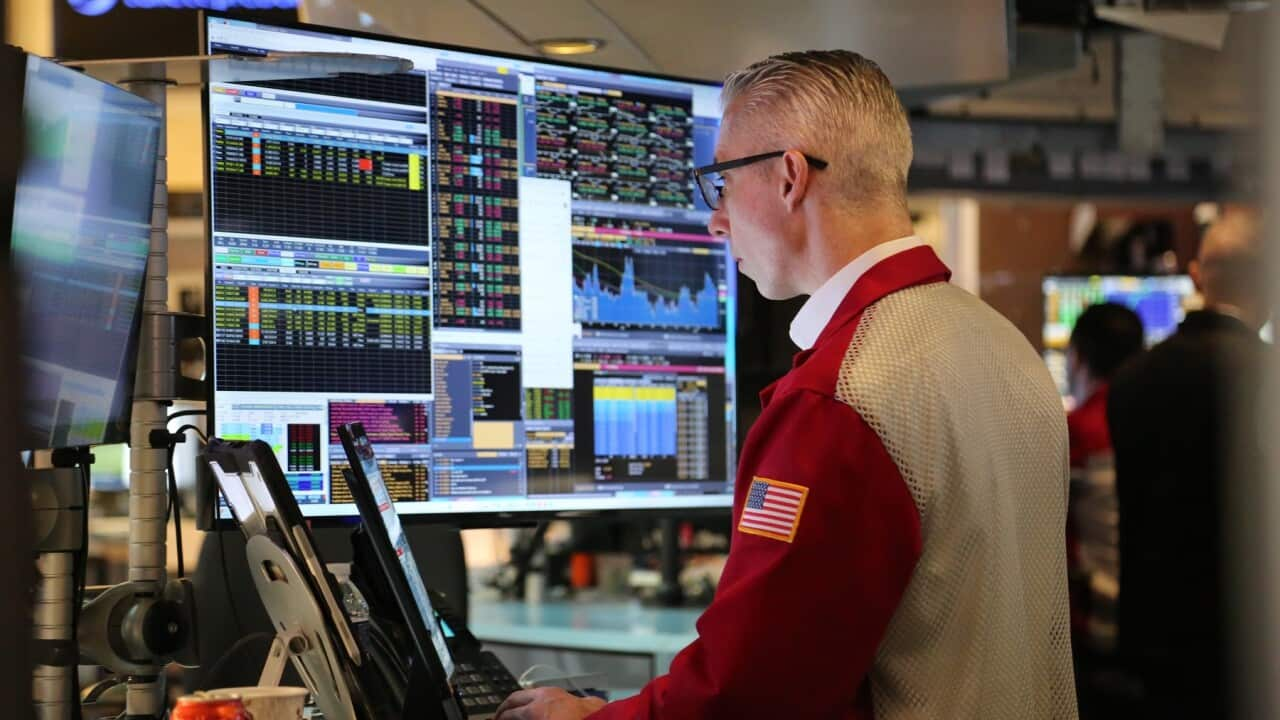TRANSCRIPT
Palestinian Catholics in Gaza chanting at a ceremony in honour of Pope Francis.
The sounds of worship and mourning in a Catholic parish in Gaza following the passing of Pope Francis.
Dubbed the "pope of the people", he was lauded for his simplicity, humility and compassion for many of the world's most vulnerable communities.
When he was elected as head of the Roman Catholic Church in 2012, Francis, born in Buenos Aires s as Jorge Mario Bergoglio was the first non-European pope in nearly 13 centuries.
As pope, he transformed the way the church viewed the role of women, how it treated the L-G-B-T-I-Q+ community and how it responded to events such as the climate crisis and international conflicts.
But perhaps the pontiff's most lasting impact on the Catholic tradition has been his concerted effort to shift the Church away from its Eurocentric roots to better reflect the diverse, global face of Catholicism.
“I am pleased to be here in the midst of this Christian community that clearly manifests its 'Catholic' face: a universal face, a church made up of people from various parts of the world who come together to profess our one faith in Christ. This is the strength of the Christian community. Let us seek to be guardians and builders of unity!”
One of the ways Francis sought to build this cross cultural unity was through his many visits abroad, such as this historic visit to Timor-Leste last Septembe.
While it may not have seemed like an obvious destination for the pope to some, Timor-Leste has the highest proportion of Catholics outside of the Vatican, at 97 per cent of the population.
The three-day visit drew estimated crowds of 600,000, considered the biggest event since the country gained independence from Indonesia in 2002.
Timor-Leste's President Jose Ramos-Horta makes it clear how much the faith leader meant to his country.
"I just received information that Papa Francisco has passed away a few minutes ago. Not only we the Catholic Church, all religions and all humanity have suffered a tremendous loss. We all remember the Pope's Visit to Timor Leste last September, before boarding the plane to return to Rome, while holding my hand for the last time and telling me, 'please pay close attention to this beloved people."
Pope Francis also understood the need for flexibility in how Catholic liturgy was disseminated to different cultural communities across the world.
In November 2024, Francis approved liturgical adaptations to the needs and circumstances of indigenous communities in southern Mexico, the Amazon Australia’s Aboriginal communities in the Diocese of Broome.
The pope's awareness that the future of the Catholic Church may lay outside of its European origin point was also reflected in his choices for cardinal appointments.
For many centuries, most Catholic cardinals were Italian, a norm that had begun to be broken down by Pope Paul VI in the 1960s and accelerated by Polish Pope John Paul II, who was the first non-Italian pope in 455 years.
Francis appointed more than 20 cardinals from countries that had never previously had a cardinal, nearly all of them from developing countries such as Rwanda, Bangladesh, Cape Verde, Tonga, Myanmar, Mongolia and South Sudan, or countries with very few Catholics such as Sweden.
In South Sudan, worshipper and activist Jacob Chol says his community is mourning an advocate of peace in Sudan and South Sudan.
"Today is very sad news for all of us in South Sudan and in Sudan, that we lost our great hero who actually worked for peace for this country. We remember when our leaders went to Rome, when he went and kissed their feet. We tell them a message, which is actually very, very important, that I want you guys, when you go back home, make sure those who are left behind, let them be the fruits of this country. Because he really urged our leaders in the country that we have peace."
When electing cardinals, he repeatedly overlooked vacancies in major European cities that traditionally had cardinals, often looking to where he believed the Church had more potential to grow in comparison to the mostly stagnant West.
This includes three cardinals appointed in the Philippines, which has Asia's largest Catholic population.
Filipino Cardinal Luis Antonio Tagle, one of Francis's likely successors, would be the first pope from Asia if elected as a result of the conclave.
"Being a small minority doesn't mean the church is dead. We believe that Jesus is alive, and he was born, and he ministered, and he rose from the dead in Asia."
In the final years of his life Pope Francis's advocacy for Christians across the world was seen in his calls for peace in Ukraine and his special attention to Palestinian Christians suffering in Gaza.
Some of the world's oldest churches have been destroyed by Israel's devastating bombardment of the territory amid their war with Hamas.
Parish priest of Gaza's Catholic Church, father Gabriel Romanelli, praised the late pope for his daily calls of support which he maintained right up until his death.
"So, for us, this is a very special day, very sad day, because today died the Pope Francis, he show us his paternity. He's very close to us, all the time here he called us during all this war, this horrible war. For more than one year and a half daily, he called us and to ask for peace, to pray for peace, and to give the blessing for all Gazan people and for all the Palestinian."
Pope Francis's success at championing efforts at forming a new, inclusive and multicultural Catholic Church can be evidenced by the mourning felt by Catholic communities the world over.
Mexican President Claudia Sheinbaum says her country and much of the world will remember him as a fierce champion of peace.
"Pope Francis was a humanist, a man who was always close to the most humble, to the poor. Even yesterday, his message was for peace. So, it is a painful loss. May he rest in peace, and our embrace and affection to the whole world and particularly to the Catholics of Mexico."













